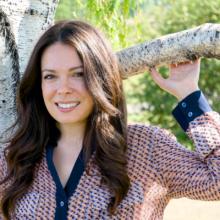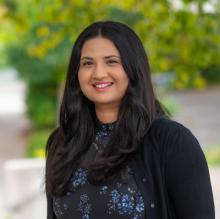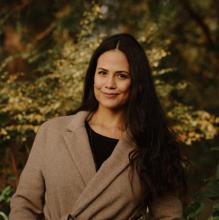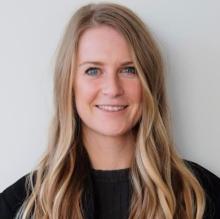Williamson, Elaine
Being a Public Scholar means leveraging my 30 years in industry and nonprofit leadership, as well as 18 years of teaching at UBC's Sauder School of Business to bridge the gap between academia and the community. It's about making research accessible, impactful, and actionable — ensuring that the work we do in higher education directly benefits society.
Research Description
This project proposes the co-creation and development of a series of workshops with the Haida Gwaii Institute to empower existing and aspiring Indigenous business owners in the tourism sector. The project aims are to enhance the development of business skills, provide strategies for marketing Indigenous-led tourism and foster sustainable tourism practices that respect and promote Haida culture. This initiative, rooted in decolonizing methodologies, prioritizes Haida perspectives, ensuring that all research objectives and deliverables are co-created and originate from consultation with the community rather than externally imposed. Using principles based on Carol Anne Hilton’s Indigenomics (2021) and a decolonized approach, this scholarly work focuses on enhancing the Haida Nation’s economic autonomy while reinforcing cultural, social and environmental sustainability. This project is an innovative approach to integrating academic research with societal transformation within Indigenous contexts. The co-development, execution and outcomes of the workshop series will form a component of my disseration which focuses on the revitalization of Indigneous tourism in Haida Gwaii amidst the Nation’s transition to self-determination. By engaging with the community to co-create business management workshops, this project enriches the practical understanding of sustainable Indigenous tourism development and provides empircal data, firsthand narratives and the opportunity to employ qualitative research methodologies highlighting the complexities and potential of Indigenous-led tourism initiatives. These insights will be insttumental in crafting an analysis of how tourism can serve as a mechanism for economic and cultural advancement. The feedback and results derived from the workshops will offer useful case studies and models wthat can be analyzed within the dissertation to propose scable, community-centric tourism strategies that align with the goals of self-determination. This direct integration of community-involved reserach into my academic work will enhance the scholarly discourse on Indigenous tourism. The workshops will cover a range of topics from sustainable tourism practices and marketing strategies tailored for Indigenous businesses to basic business knowledge essential for startup success and operations including business financial literacy, customer service and digital presence management. The workshops will explore various business models, from traditional to innovative, from single proprietorship to co-ops and community-based models, assessing their suitability for different types of tourism services. Attention will be given to scalability and how entrepreneurs can grow in a manner that is sustainable and aligned with Haida values and community goals. This may include discussions on diversifying product offerings, expanding market reach and using digital tools. The goal is to provide immediate knowledge and skill development and equip participants with the strategic insight needed to adapt to changing economic landscapes as the Haida Nation move further along the path to self-determination.
What does being a Public Scholar mean to you?
Being a Public Scholar means leveraging my 30 years in industry and nonprofit leadership, as well as 18 years of teaching at the UBC Sauder School of Business to bridge the gap between academia and the community. It's about making research accessible, impactful and actionable — ensuring that the work we do in higher education directly benefits society. With enthusiasm and a commitment to service and mentorship, I see public scholarship as a platform to drive change, empower communities, and apply academic insights to real-world challenges, particularly in support of women, families and marginalized populations.
In what ways do you think the PhD experience can be re-imagined with the Public Scholars Initiative?
With my extensive background in industry, nonprofit leadership and teaching in higher education, combined with graduate degrees in business and liberal studies, I see the Public Scholars Initiative as a way to reimagine the PhD experience by upending the traditional academic experience to connect research with community needs and decolonized research approaches. By fostering partnerships with organizations, it ensures that doctoral work is relevant while still being rigorous in design and execution. The PSI enhances communication skills, making research accessible and actionable and offering a way for scholars to become leaders and change-makers.
How do you envision connecting your PhD work with broader career possibilities?
My PhD work will be catalytic to expand my career in meaningful ways. By combining research on Indigenous entrepreneurship, business models and governance with my extensive experience and relationships in industry and nonprofit leadership, I aim to bridge academic insights with real-world applications. This work opens up opportunities to influence policy, consult for organizations committed to sustainable development and lead initiatives that promote cultural and economic sustainability. It will also enrich my teaching and mentoring, empowering me to inspire future leaders while exploring new career avenues in both academia and the wider community.
How does your research engage with the larger community and social partners?
My research is rooted in engaging with Indigenous community members, focusing on Indigenous entrepreneurship, business models, reconciliation agendas, decolonized research approaches and Indigenous self-governance. My work involves collaboration with Indigenous communities, ensuring their voices, traditions and knowledge are centred. By partnering with local organizations, government bodies, and cultural institutions, I aim to co-create solutions that address current challenges, promote sustainable development, and preserve cultural heritage. Through workshops, community dialogues and participatory research methods, I will collaborate and co-create research approaches with community members and stakeholders. This approach enhances the relevance and impact of my work and fosters trust, advances reconciliation and promotes a decolonized approach to research. My goal is to produce research that advances academic knowledge and delivers benefits to the communities and partners involved.
Why did you decide to pursue a graduate degree?
I pursued a third (!) graduate degree because I’m excited about the potential to make a meaningful impact on the communities and issues that matter to me. After years of experience in industry, nonprofit leadership and higher education teaching, I feel a responsibility to expand my knowledge and skills to contribute to underserved populations in Canada. This degree is more than an academic pursuit; it’s a way to combine my experience with new insights to contribute to positive change across our country. I’m driven by a desire to uplift communities, and this degree is a key step in equipping me to do that more effectively.
Why did you choose to come to British Columbia and study at UBC?
I chose to study at UBC because of its reputation for academic excellence and its strong commitment to Indigenous research and community engagement. UBC offers a unique environment where I can learn and contribute to the body of knowledge on Indigenous entrepreneurship, business and governance while being part of a diverse and vibrant community. The university’s resources, faculty expertise and connections with Indigenous communities provide a platform to deepen my research and make an impact. UBC’s values align with my commitment to serving communities and driving positive change,




